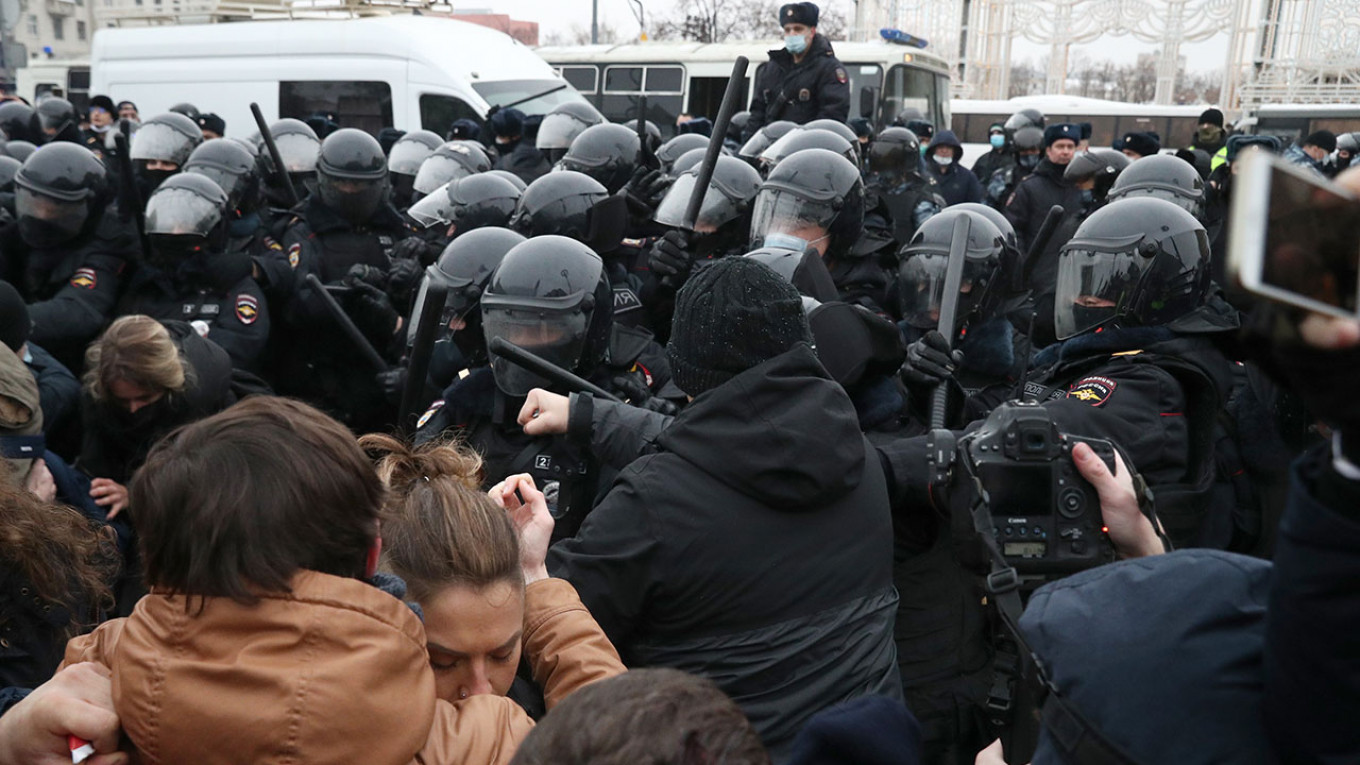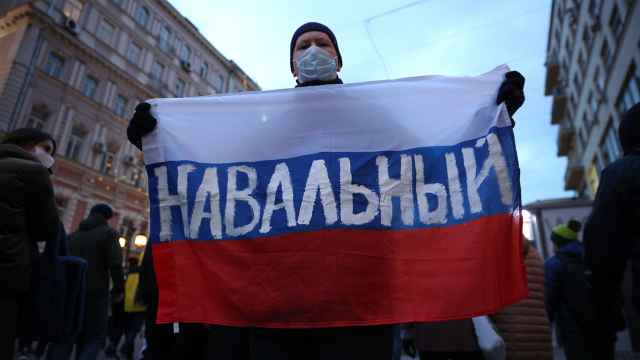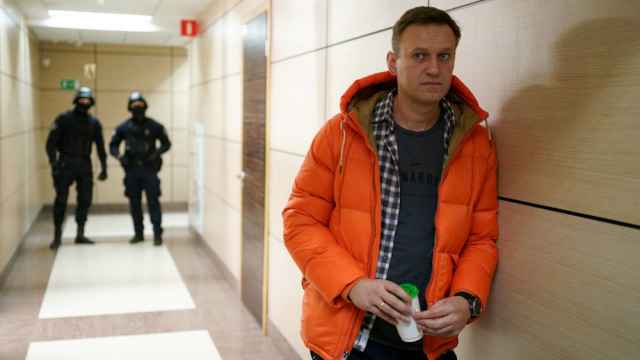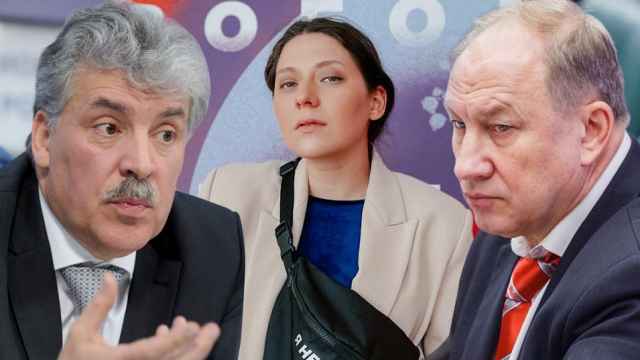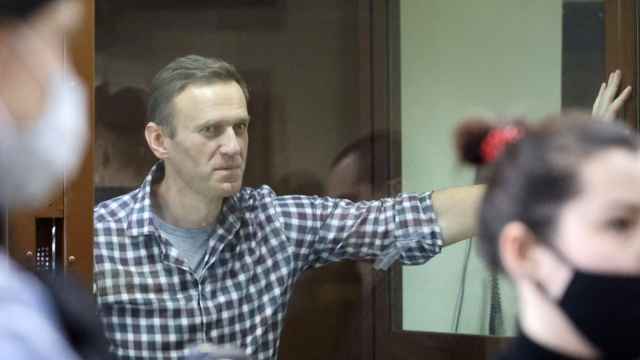At least 20 Russians who attended protests calling for the release of jailed Kremlin critic Alexei Navalny this winter have received real prison terms, the independent news website MediaZona reported Friday.
Over 11,000 people were detained nationwide at the unauthorized pro-Navalny protests amid widespread claims of police brutality against peaceful protesters. More than 100 of those detained have since been charged with hooliganism, violence against police officers, violation of coronavirus-related health restrictions and blocking roads.
According to MediaZona, 11 of the protesters were jailed in Moscow. The other prison sentences were handed down in St. Petersburg, Kazan, Pskov, Lipetsk, Vladimir and Novopokrovka.
Most of the prisoners were found guilty of using violence against security officers, while three others were sentenced for “calls for extremist action” and one for arms possession.
“There are dozens of new political prisoners in more than 30 Russian cities after the January rallies for Navalny’s release,” MediaZona said.
“Around 100 criminal cases make these the most massive repressions in recent years, with which neither the ‘Bolotnaya’ nor the ‘Moscow’ cases can compare,” it added, referring to criminal charges filed after 2011 and 2019 anti-government demonstrations.
The latest protester to receive a real prison term is Moscow State University (MGU) student Said-Muhammad Dzhumayev, who was sentenced to five years in a penal colony Thursday for clashing with police during the Jan. 23 rallies.
Video of Dzhumayev’s bare-knuckle brawl with truncheon-wielding riot police officers went viral online.
Navalny himself is serving 2.5 years in prison on charges of violating parole in an old suspended sentence for fraud while recovering abroad from the Aug. 20, 2020, poisoning he blames on the Kremlin.
World leaders including U.S. President Joe Biden and French President Emmanuel Macron have called on Putin to release Navalny, who accuses the Kremlin of masterminding his poisoning with a Soviet-era nerve agent. The Kremlin denies that Navalny was poisoned and accuses Western countries of orchestrating the incident with the aim of discrediting Moscow.
Navalny, 45, faces up to three more years in jail on new criminal charges of “creating a nonprofit organization that infringes on the identities and rights of citizens” that authorities filed last week.
His movement has faced renewed pressure in recent months with a court outlawing his political and activist network as “extremist,” close allies being sentenced for “violating coronavirus restrictions” over calls to attend this winter’s protests and supporters receiving police visits at leaked addresses.
A Message from The Moscow Times:
Dear readers,
We are facing unprecedented challenges. Russia's Prosecutor General's Office has designated The Moscow Times as an "undesirable" organization, criminalizing our work and putting our staff at risk of prosecution. This follows our earlier unjust labeling as a "foreign agent."
These actions are direct attempts to silence independent journalism in Russia. The authorities claim our work "discredits the decisions of the Russian leadership." We see things differently: we strive to provide accurate, unbiased reporting on Russia.
We, the journalists of The Moscow Times, refuse to be silenced. But to continue our work, we need your help.
Your support, no matter how small, makes a world of difference. If you can, please support us monthly starting from just $2. It's quick to set up, and every contribution makes a significant impact.
By supporting The Moscow Times, you're defending open, independent journalism in the face of repression. Thank you for standing with us.
Remind me later.


